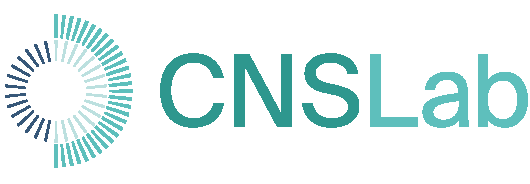Revolutionise Food Sensitivity Management: Unlock the Power of Digital Health
As awareness of the body's reactions to certain foods increases, people are becoming increasingly mindful of how specific foods can trigger discomfort and symptoms such as irritable bowel syndrome (IBS).
The causes of food sensitivities are complex; however, damage to the intestinal barrier wall is believed to play a significant role. Scientific research has demonstrated a link between food sensitivity and IgG antibodies produced in response to consuming these 'problem' foods.
Understanding Food Sensitivities with IgG Tests
Identifying the potential causes of symptoms can now be easily determined through an IgG food sensitivity test. These diagnostic technologies expedite the process of pinpointing an individual's unique food sensitivity reactions, enabling them to adjust and plan their new diet and address symptoms effectively.
But how can digital technology help manage symptoms and improve outcomes…
The Digital Revolution in Healthcare
The digital revolution has ushered in a new era of possibilities in healthcare, particularly in the management of food sensitivity. The intersection of healthcare and technology, known as digital health, is reshaping the landscape, providing previously unimaginable tools and insights. For healthcare practitioners navigating the complexities of food sensitivities, digital health offers a beacon of innovation, promising to enhance patient care and outcomes.
The Essence of Digital Health in Food Sensitivity Management
Digital health integrates the latest in digital technologies with healthcare practices to streamline and enrich healthcare delivery. This convergence presents a unique opportunity for practitioners to elevate the standard of care through precision diagnostics, enhanced patient engagement, symptom tracking, better access and understanding of test results and personalised treatment plans.
Catalysing Change: Empowering Practitioners with Digital Health
The adoption of digital health technologies is driven by several key benefits for practitioners and their patients:
- Patient Empowerment and Engagement: Digital platforms grant patients unparalleled access to their health information, empowering them to manage their food sensitivities actively. This empowerment fosters a collaborative practitioner-patient relationship, essential for successful long-term management.
- Efficiency and Personalised Care: Digital health tools streamline administrative tasks and enhance patient record management, allowing practitioners to dedicate more time to patient care. Moreover, these technologies facilitate the development of highly personalised care plans, improving treatment outcomes.
- Symptom Tracking and Analysis: These tools enable patients to log their symptoms in real time, offering a detailed record of how their bodies respond to different foods. This continuous, data-driven feedback loop provides practitioners with comprehensive insights into their patients' conditions, allowing for more accurate and tailored dietary recommendations.
Success Stories: The Impact of Digital Health
The effectiveness of digital health in enhancing patient outcomes is evident through various innovative applications:
- Telehealth Services: Have enabled continuous support and consultation for patients managing food sensitivities, particularly during times when in-person visits are not feasible, such as during COVID-19.
- Wearable Technology: Devices that monitor physiological responses can aid patients and practitioners in identifying specific triggers, leading to more effective management strategies.
- AI (Artificial Intelligence) and Machine Learning: These technologies are utilised to analyse extensive data sets, providing insights into patterns and trends that can inform better dietary recommendations and interventions.
Addressing Challenges Together
Despite the potential of digital health, navigating challenges such as data privacy, regulatory compliance, and equitable access to technology is crucial. Overcoming these hurdles requires a collective effort from healthcare providers, technology developers, and regulatory bodies to forge a secure, effective, and accessible digital health ecosystem.
The Future Is Digital: MyHealthTracker in Food Sensitivity Management
We continuously seek innovative ways to improve patient outcomes by providing practitioners and patients with the necessary tools. MyHealthTracker, designed specifically for food sensitivity management, serves as an invaluable resource for practitioners and patients, offering features like symptom tracking, dietary analysis, and insights. These apps enhance the quality of care and supports a more personalised approach to managing food sensitivities.
MyHealthTracker embodies the promise of digital health to transform the practitioner-patient dynamic, making healthcare more collaborative, informed, and tailored to individual needs. By incorporating such technologies into practice, healthcare providers can significantly improve patient outcomes, ushering in a future where every patient's unique dietary health journey is supported by the best in digital innovation.








